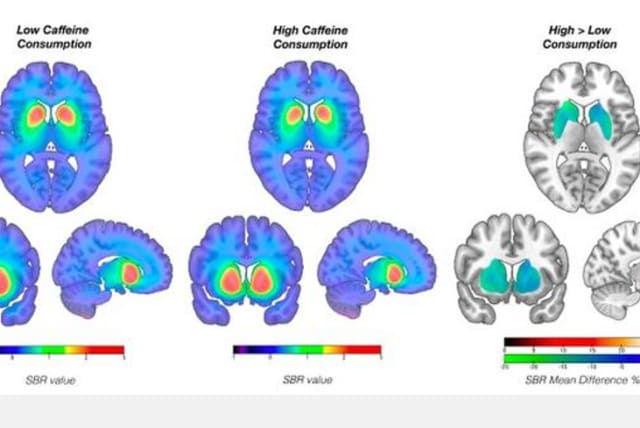Can coffee decrease dopamine levels in those diagnosed with Parkinson's disease? - study

Finish researchers found that patients who drank a lot of coffee had an 8.3% to 15.4% greater decrease in dopamine transporter binding compared to those with a low caffeine consumption.
Coffee is not only a beverage without which many people can’t start their day. Doctors have been discovering a variety of health benefits from the tasty drink, including lengthening life, being able to process sugar better, less likely to get heart failure, a stroke, and liver disease; your DNA strands will be strong, as weak ones can lead to cancers; and a lower risk of colon cancer and Alzheimer’s disease and other dementias.
Now, researchers at the University of Finland and Turku University Hospital in Turku have found that regular high caffeine consumption affects dopamine function in patients with Parkinson’s disease (PD) – not always for the good.Caffeine consumption before undergoing diagnostic brain dopamine imaging can affect the imaging results.
“The association between high caffeine consumption and a reduced risk for PD has been observed in epidemiological studies. But ours is the first to focus on the effects of caffeine on disease progression and symptoms in relation to dopamine function in Parkinson’s disease,” said neurology Prof. Valtteri Kaasinen, who led the study.
The team published its findings in the journal Annals of Neurology titled “Dietary Caffeine and Brain Dopaminergic Function in Parkinson's Disease.”
Previous research has shown that regular caffeine intake is indeed associated with a reduced risk of developing PD.
Still, there is limited research on the effects of caffeine on disease progression in patients who have already been diagnosed and how consuming caffeine affects brain dopamine function over an extended period in patients diagnosed with Parkinson’s disease.
How caffeine consumption affects those with Parkinson's disease
Caffeine consumption did not affect PD symptoms, and the observed decline in dopamine function is unlikely to be due to a greater reduction in dopamine neurons following caffeine consumption.Rather, it is more likely to be a downregulatory compensatory mechanism in the brain that has also been observed in healthy individuals following caffeine and other stimulant use.
The brain's dopamine function was assessed using single photon-emission computed tomography (SPECT) to measure dopamine transporter (DAT) binding.
The clinical study compared 163 patients with early-stage PD to 40 healthy controls. The examinations and imaging were conducted twice for a subsample, with an average interval of six years between the first and second imaging sessions. Changes in brain dopamine transporter binding were compared with patients’ caffeine consumption, which was assessed by a validated questionnaire and by determining concentrations of caffeine and its metabolites in blood samples.
They found that patients who drank a lot of coffee had an 8.3% to 15.4% greater decrease in dopamine transporter binding compared to those with a low caffeine consumption. However, they said the observed decline in dopamine function is unlikely to be due to a greater reduction in dopamine neurons following caffeine consumption. Rather, it is more likely to be a downregulatory compensatory mechanism in the brain that has also been observed in healthy individuals following caffeine and other stimulant use.
“While caffeine may offer certain benefits in reducing the risk of Parkinson’s disease, our study suggests that high caffeine intake has no benefit on the dopamine systems in already diagnosed patients. A high caffeine intake did not result in reduced symptoms of the disease, such as improved motor function,” said Kaasinen.
Jerusalem Post Store
`; document.getElementById("linkPremium").innerHTML = cont; var divWithLink = document.getElementById("premium-link"); if (divWithLink !== null && divWithLink !== 'undefined') { divWithLink.style.border = "solid 1px #cb0f3e"; divWithLink.style.textAlign = "center"; divWithLink.style.marginBottom = "15px"; divWithLink.style.marginTop = "15px"; divWithLink.style.width = "100%"; divWithLink.style.backgroundColor = "#122952"; divWithLink.style.color = "#ffffff"; divWithLink.style.lineHeight = "1.5"; } } (function (v, i) { });

